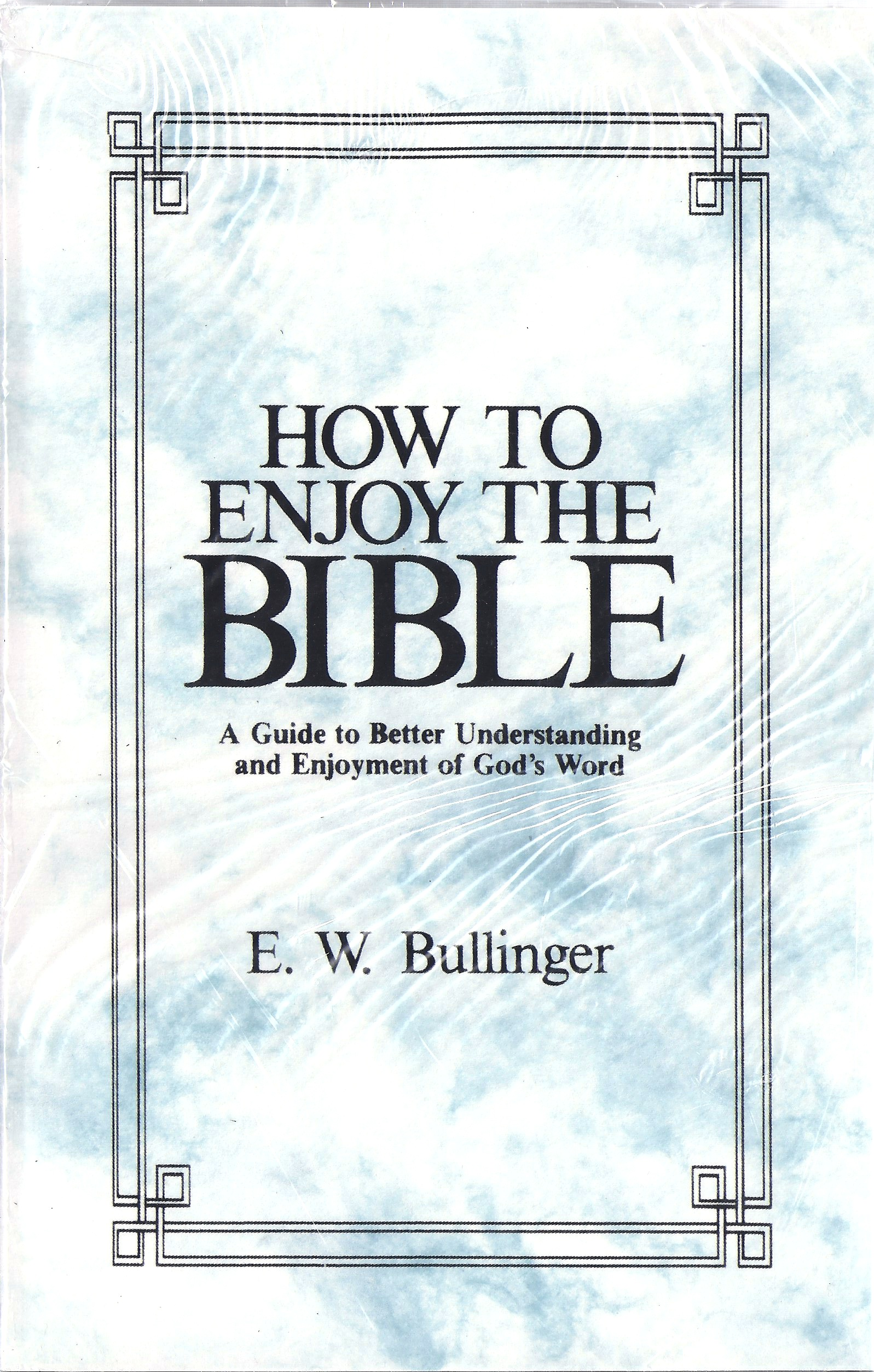Currently we accept orders for domestic delivery only.
If you are located outside the United States and wish to make a purchase, please contact us or mail us at:
Truth For Today, Inc., PO Box 607, West Union, SC 29696
or call Ph. # 864-638-8780
How to Enjoy the Bible
How to Enjoy the Bible
Available in Hardback and Paperback
By E.W. Bullinger (1837-1913)
Book Review by Robert Guenther
Its subject is the words of God and how to study them. The author’s purpose in writing this book is to help believers to read, study, understand, and enjoy the Bible for themselves. The truth that is revealed in II Timothy 2:15 “study to show thyself approved until God, a workman that needeth not to be ashamed, rightly dividing the word of truth”, is one of the principles brought out in this book.
This book is divided into two main parts; the Word as a whole, and the words of which the Word is composed. In part 1 we discover that the Greek word “logos” means both the spoken and the written Word of God. Logos is used of Christ because He reveals to us the invisible God. The scriptures are called the “Word of God” because they make known the Father and the Son. The Holy spirit reveals both in the Son. The Holy Spirit reveals both in the written and preached Word, so we learn about the Word through the word. Also covered in Part 1 are the many different ways the Bible has been divided: OT and NT; 66 books; chapters and verses. These breaks help us line up times and dispensations so that we might further understand the past, present, and future truths.
The child of God, Dr. Bullinger suggests, has poor spiritual health because he does not feed the “New Man” the proper food, which is the Word of God. The Bible is not understood because the correct methods and rules are not known or applied, hence the Word is neglected. Dr. Bullinger saw the need to establish basic study guidelines, or rules, to aid the student as he attempts to study the Bible. Parts 2 addresses the following:
1. Meaning from The Scope
2. Scope Gathered from Structure
3. Biblical Usage of Words
4. Context
5. First Usage
6. Placement of Instructions
7. No One Text is Repugnant to Another
8. Accuracy in Scriptures
9. Figures of Speech
10. Interpretation and Application
11. The Limits of Inspiration
12. Place of Various Readings
By the aid of these simple rules, many passages may be taken up and pursued both with pleasure and profit. Of course, in the end, all Bible study must be done by the individual. No one else can partake of your spiritual food for you. As the prophet Jeremiah said in 15:16, “Thy words were found, and I did eat them: and Thy word was unto me the joy and rejoicing of mine heart…”

